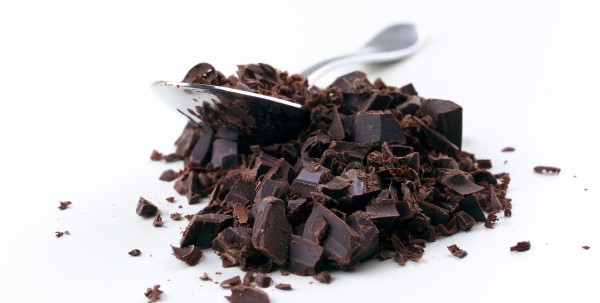Flavonoids in Some Food and Beverage Products Could Help Lower Blood Pressure
Scientists say eating foods and drinking beverages filled with flavonoids like apples, berries, and tea, among others, could help lower blood pressure.
Flavonoids are a plant nutrient type that has been known to help with the circulation of blood, not to mention vessel health.
However, according to scientists, while past research depended on "self-reported data to draw conclusions," their study is a pioneering epidemiological research of this scale to objectively examine the link between a particular bioactive compound and health.
The study, which Scientific Reports journal published recently, is based on an analysis of the diet of over 25,000 individuals in Norfolk.
ALSO READ: Eating Food Which Has Been Out for a Long Time Could Result in Foodborne Illness

An expert said, in British diet is ‘the main sources of flavonoids include cocoa, apples, berries and tea.’
Link Between Flavonoids, Food and Beverages, and Blood Pressure
According to the University of Reading nutritionist Professor Gunter Kuhnle, the research lead, what the study "gives us is an objective and significant finding" about the link between flavonoids in tea and some fruits and blood pressure.
The professor added, this study confirms the findings from previous dietary intervention research that presents the same conclusions that can be achieved with a typical flavonoid-rich diet.
Specifically, in the British diet, Kuhnle explained, "the main sources include cocoa, apples, berries and tea."
An international research team that includes experts from Cambridge University and the University of Reading studied more than 25,000 participants from the EPIC or the European Prospective Investigation into Cancer Norfolk study, who have been offering information about their lifestyle, health, and diet for more than 20 years.
Researchers gauged the flavonoid intake of participants through the use of nutritional biomarkers. These are biological gauges of dietary consumption and metabolism, which are present in the blood.
DON'T MISS THIS: Why Stress Makes One Overeat or Not Eat at All, and How to Overcome It
Reduction in Cardiovascular Incidence
The use of nutritional biomarkers to approximate bioactive food compounds' consumption, Prof. Kuhnle explained, has long been considered the "gold standard for research" as it allows consumption to be gauged objectively.
The development, verification, and use of biomarkers were only possible because of the collaborators' long-term commitment, added the study lead.
Based on what they found in their study, the researchers explained that if people increased their intake of flavonoids, there could be an overall drop in cardiovascular disease occurrence.
Describing the research findings, nutrition researcher Dr. Ian Johnson, also an Emeritus Fellow at the Quadram Institute in Norwich, said they are an essential high-quality examination "of some psychological impacts of dietary flavonoids."
Effect on Blood Pressure
Dr. Johnson also said the researchers have been able to report that systolic blood pressure was lower in people who consumed the highest amounts of flavonoids than those who consumed the lowest.
He added that this is a potentially essential observation as it is "consistent with the growing evidence from randomized control human intervention trials" that show comparatively high doses of certain flavonoids could exert a lowering effect in blood pressure.
However, Johnson, who was not part of the study, added that, amid all its strength, the observational research does not show that high intake of flavonoids leads to a drop in blood pressure. Only that, there is an association between the two.
The researchers have done their best to regulate for other factors that may be responsible for their findings, although they are right to state that extensive intervention tests will be required for the testing of hypothesis, that differences in the consumption of flavonoid can explain the differences in blood pressure that has been observed.
IN CASE YOU MISSED THIS: 6 Reasons Why You're Gaining Weight Unintentionally
Check out more news and information on Flavonoids at MD News Daily.
Oct 24, 2020 07:00 PM EDT





